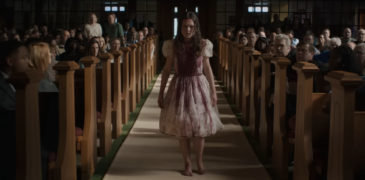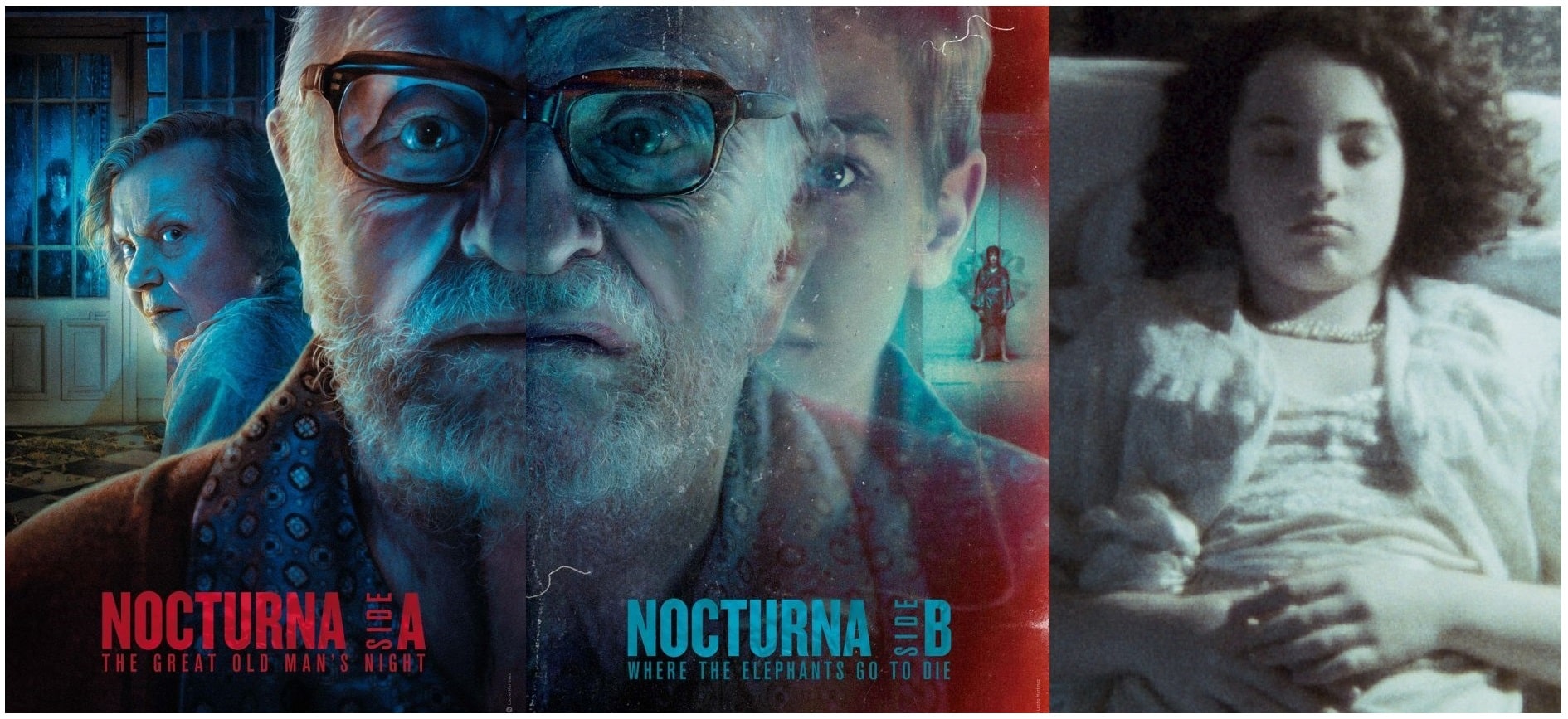
In the last decade, Argentine cinema has shifted from reflecting societal issues to telling stories that are universal and appeal to a larger fanbase while still remaining daring and unconventional. “Ostende,” a slice-of-life movie with a slick, Hitchcockian ending, “White Coffin”, which gives new meaning to the term “death game” (okay, there’s also a scene in which a character uses a coffin to knock someone out), and “Rock, Paper and Scissors,” (with its demented family dynamics reminiscent of Shirley Jackson) are all great examples of Argentine genre movies. More recently, we have seen some social-issue films with horror themes, like the Bioy Casares & Silvina Ocampo adaptation “In Love and In Hate” (with the poignant imagery of a corpse rotting in a heatwave and the corrupting force of machismo), “La Sabiduria” (bringing to life the horrors of the pampas, and Gaucho transgressions), or “Rojo” (depicting the famous “disappearances” resulting from Argentina’s Dirty War). And then there are the movies that truly push boundaries, like the 14 hour-long “La Flor,” with its tongue-in-cheek horror segment about an ancient mummy without a conclusion. So where does “Nocturna,” a film about old age, death and memory from the maker of the irreverent “Luciferina” (which was about good and evil, sexual liberation, the Devil, and featured one of the most infamous exorcism scenes in horror), fit in all this?
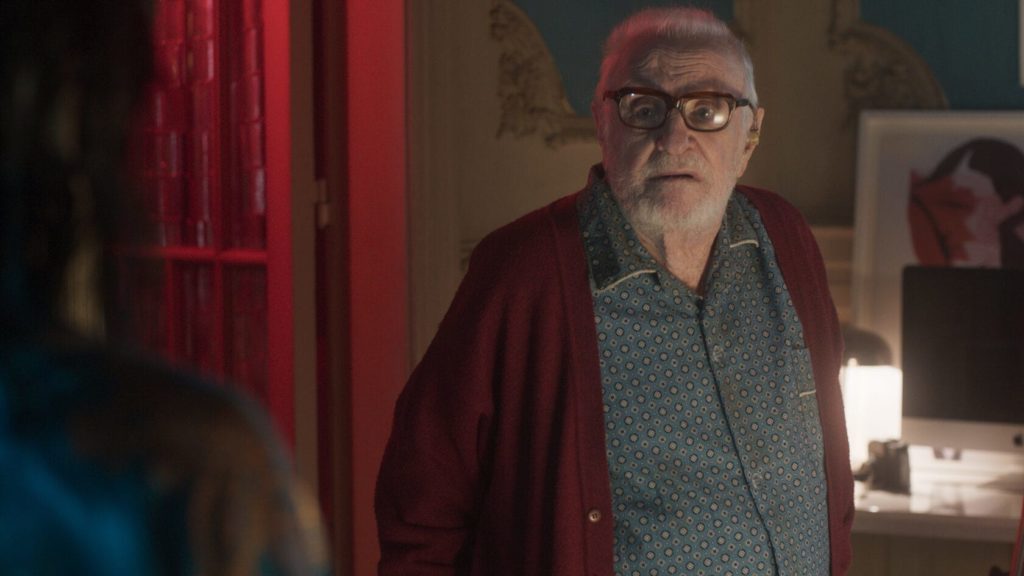
In short, Nocturna (2021) carves a place of its own as not only spellbinding cinema, but a true masterpiece that manages to tick several genre checkboxes and certainly goes above and beyond when it comes to storytelling techniques, visuals and immersion. In telling the story of a dying old man with regrets, coming to terms with the reality of his unreliable memory, with confusion manifesting in horrific ways, the movie adeptly conjures one heartbreaking reveal after another. Veteran actor Pepe Soriano delivers a devastating performance as Ulises but does not fail in allowing the supporting cast to shine. All of this culminates in a truly terrifying experience and specifying which horror sub-genre it falls into would risk robbing viewers of the pleasure of discovering it by themselves, but let’s just say fans of Charles Dickens, Casares and Ocampo will be pleased.
One should be aware that Nocturna (2021) is actually comprised of TWO movies, titled “Side A: The Great Old Man’s Night,” and “Side B: Where the Elephants Go to Die.” From the get-go, just seeing the INCAA logo at the beginning of “Side A” is an act of reassurance in itself, knowing how big its contribution to independent Argentine cinema is. One might expect Nocturna (2021) to be similar to other recent films, such as “Amour,” “Vortex,” or even “I‘m Not Here,” (a slew of movies about elderly people or couples), with some tacky horror elements added as flavor, but this film refuses to be so easily compartmentalized. While Nocturna (2021) does fit in this category, it is also reminiscent of a Bioy Casares short story, where a reluctant protagonist spends the night reflecting on the world’s problems in an apartment building which functions like a Gothic mansion, a delightful mix of the supernatural and an introspective detective story. The main character is a man who is almost 100 years old, suffering from dementia and fearful of his impending death, but more focused on keeping his current living situation with beloved Dalia – his childhood crush, now loving wife (or is she?) – a secret from the building superintendent.
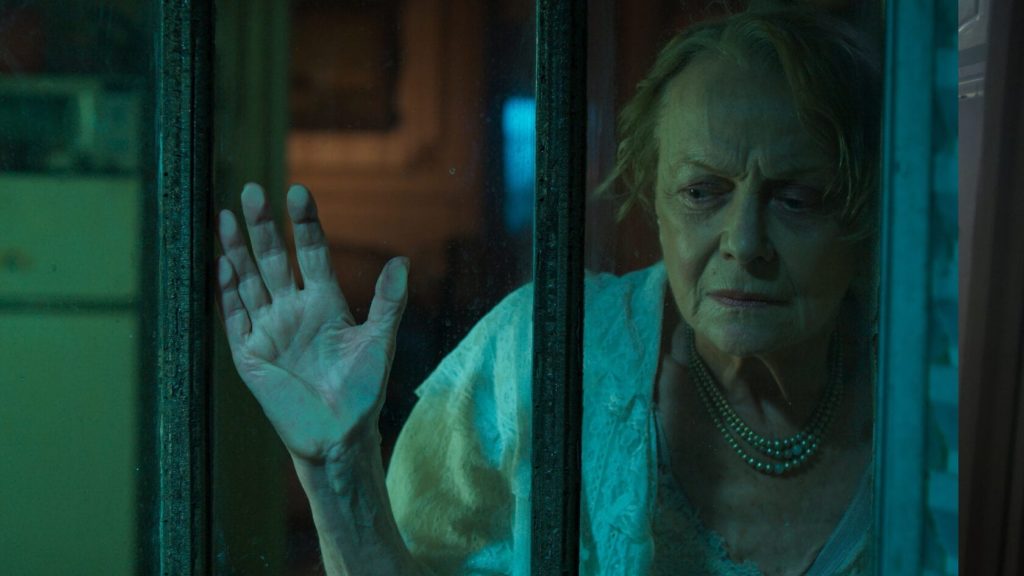
Is it fear and mistrust of authority (a recurring theme in Argentine cinema where the ghosts of the past often collide with the present), the simple desire of the aging to spend their last days in their own home, instead of being shipped to a home for the elderly where they would just be abandoned or forgotten? Or is it perhaps fear of retribution for some past misdeeds? It might just be all of the above; the couple has their share of fraught relationships, including their distant children, Ulises’s unresolved issues with his own mother, or the complex and often dark nature of Ulises’s and Dalia’s relationship, with a past involving physical and emotional abuse. On top of that, we are introduced to Elena – a photographer who commits suicide, landing on Ulises’s balcony, igniting the chain of events and memories which will engulf the old man’s decaying mind during his last night on Earth.
The main themes of “Nocturna’s” “Side A” are investigating and dealing with past issues, the fallibility of memory, the act of dying in a community (the movie compares Ulises to an elephant sometimes, because of their excellent memory and the way they sense death and prepare for it), and subconscious behavioral ‘loops’ which all characters must overcome. The number “four” appears frequently throughout the film and is significant of important details to look out for – there is mention of “four corners,” and there are (depending on how you see it) four characters who are alive and four who are dead. The production values and stunning cinematography mostly emphasize the mystery element of the story, which might seem strange coming on the footsteps of “Luciferina,” (it chooses lulling one in instead of shocks and gore) but which suit the heartrending story to a tee. If Ulises’s coarse voice commenting on his own failings will not move viewers to tears at the movies this year, few things will. When the film finally dishes out the answers, tears will be replaced with goosebumps – Soriano’s weary eyes as he navigates the treacherous tides of memory and past decisions, accompanied by sublime piano music manage to form an experience which transcends both genre and the inevitable trappings of melodrama.
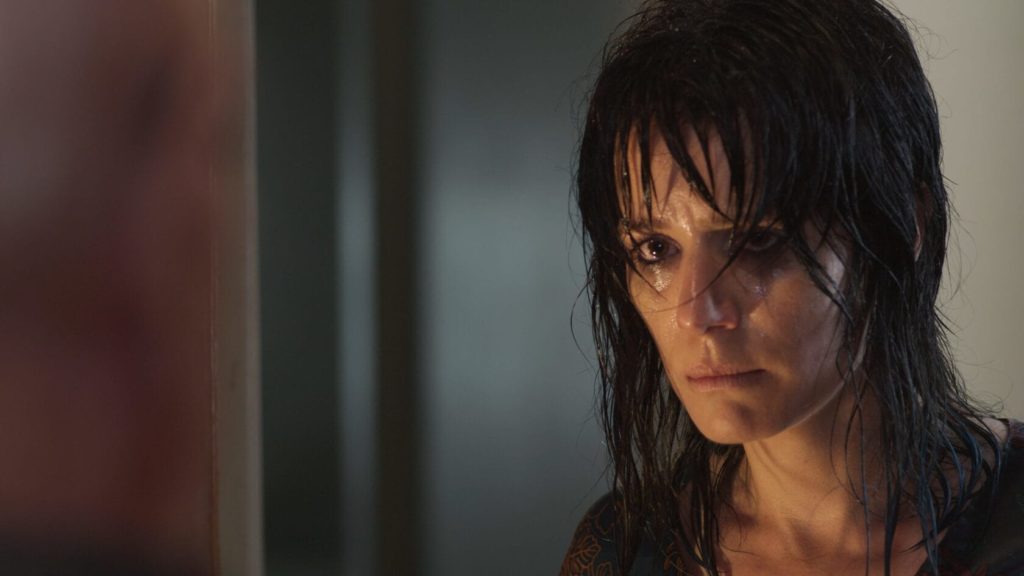
That being said, “Side A” does leave one with some questions, and audiences will more than likely be eager to check out “Side B, – Where Elephants Go to Die.” “Side B” is a 60-minute-long experimental movie which might test the patience of viewers who aren’t accustomed to dramatic monologue or, in Elena’s (the main character this time around) own words, constant “cutting, zooming and rewinding.” While this movie would not feel out of place on websites like Kinoscope or Mubi, for discerning viewers it will be exactly the daring flight which cements “Nocturna” as one of the finest cinematic experiences of the year. “Crossing beauty turns us into stones. There is no gaze possible after that – only wrinkles, folds, silences…,” one character laments as the viewer is led through a labyrinth of furtive glances, young love and childhood games from Ulises’s and Dalia’s past. At the same time, Elena’s cocoon-like existence and her dejected partner haunting the apartment’s building’s corridors take front and center in the retelling – just don’t expect a traditional narrative: this movie is broken down into defining moments, like raindrops on a windowpane.
“Side B” bravely explains one metaphor by way of a hundred other metaphors. Through a monologue reminiscent of Clarice Lispector, (writer of the existential horror “The Passion According to G.H.” in which the main character loses touch with reality and falls victim to her own paranoia), Dalia’s reasoning for her mean-spirited behavior is revealed, and neither she nor Elena are able to fully grasp the exact moment in time they became trapped, prisoners of their own lives and homes. The way they react to this state is as different as the women are themselves. While Dalia aims to trap Ulises as she herself has been trapped, Elena retreats into her photography, using Ulises as subject – the unforgettable act, the fixed point in memory that ultimately brings all of these characters together. This film is both a tribute to the art of photography and expressionism, with themes of rage, futility, torment, the illusion of time, and the idea of “ectoplasm” which exists in photographs, all of which form a Jung-like mandala. “Nocturna” is an uninterrupted sonata which may feel similar to lighting a funeral pyre, leaving one both crushed and surprisingly hopeful, somewhat akin to reading Pessoa’s “Book of Disquiet.” Julio Cortazar’s “Blow Up” also comes to mind – a short story about a man who obsesses over a photograph of a woman – as some of the methods used in that story are also used by Elena in her retelling of the events.
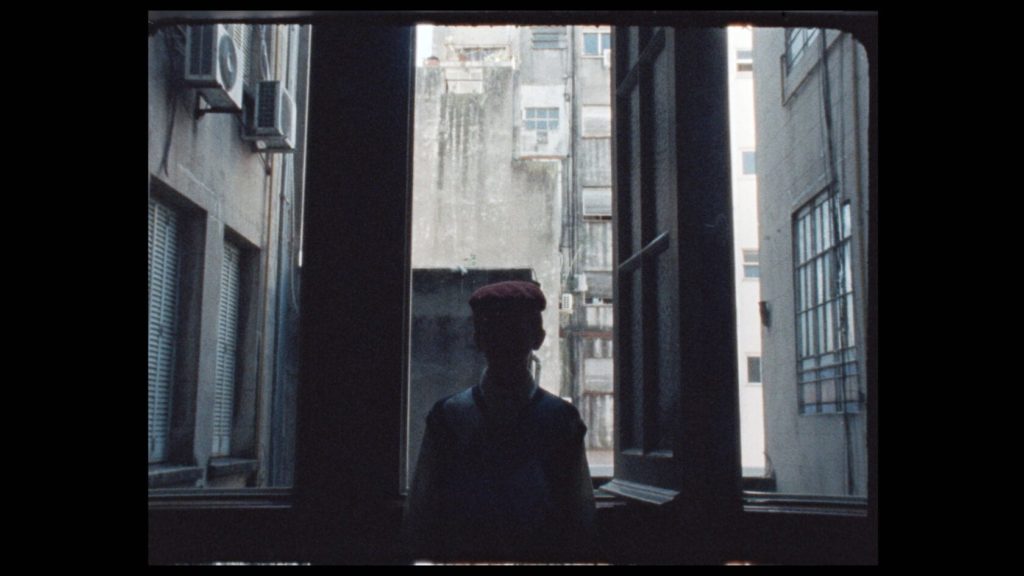
In true Argentine style, Gonzalo Calzada made “Nocturna” to also be a movie that can be taken at face-value. While it doesn’t lack the shocks, trauma and sullen atmospheres which characterize new-wave horror, it also ends up questioning and commenting on itself and its place in a larger canvas. It feels less like Shyamalan’s “Old” (a collective nightmare about not living life at its fullest) and more like a nightmare of living life the normal way and discovering that one didn’t manage to be the person they were striving to be.
“This is not what you wanted/ Not what you had in mind” – “Bad Kingdom”, Moderat
The thought of death scares most people, so much so that the fear often materializes in our dreams with common nightmares of teeth falling out, growing obese, having a stroke or heart-attack, witnessing someone dying, or falling from a great height. However, one rarely dreams that “life just happened along the way,” and that is ultimately why “Nocturna” is a welcome screen into a myriad of untapped fears of the future and of the random cruelty of fate: the limited understanding an individual has of their own peers, and the cruel, spiraling effect a simple kneejerk reaction might have. A masterpiece of emotion, “Nocturna” is not a cautionary tale, it’s just horror at its best: hidden, waiting, inevitable. But it’s also storytelling that offers the most satisfaction – the ghosts one carries within can be led into the light by the combined powers of community, family, confession, and reconciliation.

More Film Reviews
Flee the Light, the first feature film from Toronto-based production company Mythic Trips, is an indie mystical horror-thriller about two sisters who find themselves in the crosshairs of an ancient… Despite having seemingly insurmountable shoes to fill, Brandon Cronenberg is proving himself to become a sophisticated auter with a deranged vision. His interest in pushing the boundaries and distortions of… Pinku softcore porn films were big business for Japanese studios throughout the 1970s; so lucrative were these films, that when Nikkatsu was on the verge of bankruptcy in 1971, they… Late Night with The Devil is a 2023 Australian Found Footage Horror film, written and directed by the brother duo Cameron and Colin Cairnes. The pair is known for creating films… Science fiction, often preoccupied with technology and artificial beings, can sometimes seem overly intricate, neglecting the mundane facets of life. However, this stereotype is not only unfair but also doesn’t… Widely accepted as “the scariest film of all time”, William Friedkin’s The Exorcist (1973) has stood the test of time and will probably be talked about until the very end…Flee The Light Film Review (2021) – Atmospheric, Effective Witchcraft Horror
Infinity Pool (2023) Film Review: A Psychosexual, Phantasmagorical Nightmare
Semi-Document: Occult Sex (1974) Film Review – Exploring the Powers of ESP (Extrasensory Perversion)
Late Night with The Devil (2023) Film Review – Nostalgic Perfection
River (2023) Film Review – Down by the River [FrightFest]
The Exorcist: Believer (2023) Film Review – The Devil Never Gives Up But Neither Does Hollywood
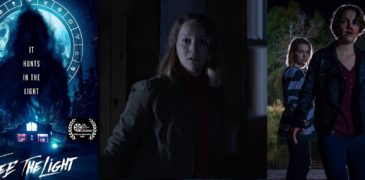
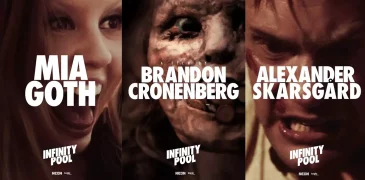


![River (2023) Film Review – Down by the River [FrightFest]](https://www.grimoireofhorror.com/wp-content/uploads/2023/08/river-365x180.jpeg)
